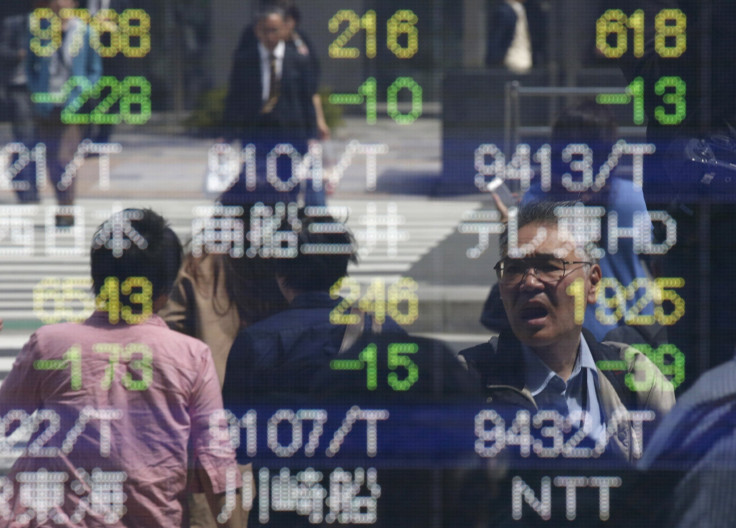Asian Shares Slip, Nikkei Skids On Yen Strength

Asian shares fell in early trading on Monday, with Japan's Nikkei plunging after the dollar notched a fresh 18-month low against the yen.
MSCI's broadest index of Asia-Pacific shares outside Japan was down 0.3 percent, after Wall Street marked losses after a spate of disappointing earnings.
Adding to the subdued sentiment, a survey released on Sunday showed that activity in China's manufacturing sector expanded for the second month in a row in April but only marginally, raising doubts about the sustainability of a recent pickup in the world's second-largest economy.
That weighed on Australian shares , which fell 0.7 percent. They were also pressured by disappointing results from Westpac Banking Corp.
Markets in Hong Kong and China will be closed on Monday.
Japan's Nikkei stock index skidded 3.8 percent in early trading, as investors reacted to the yen's galloping gains.
The dollar was slightly lower against the yen at 106.40 after earlier dropping as low as 106.20, its deepest trough since October 2014. It logged its worst week against its Japanese counterpart since the 2008 financial crisis after the Bank of Japan decided not to muster fresh stimulus steps at its latest policy meeting on Thursday.
"The start of the new month does not mean a new trend. The technical tone of the dollar is weak," Marc Chandler, global head of currency strategy at Brown Brothers Harriman in New York, said in a note to clients.
"The Federal Reserve acknowledges the continued improvement in the labor market. The problem is that it has not translated to stronger consumption, and business investment remains soft," Chandler said. "Fed officials need more confidence that the six-month economic soft patch has ended.
A measure of factory activity in the U.S. upper Midwest region remained in expansion territory for a fourth straight month, but fell in April. The latest data reinforced the view that U.S. gross domestic growth will remain sluggish following a 0.5 percent first-quarter increase, which was the weakest in two years.
Crude oil futures slipped after hitting 2016 highs on Friday and finishing April trading about 20 percent higher as fears of a global supply glut eased.
Analysts warned that the rally had been driven by investors holding large speculative positions, while oil stockpiles were still high, with a Reuters survey showing OPEC output in April rising to its most in recent history.
Brent futures slipped 0.6 percent to $47.07 a barrel in Asian trading, after notching their best monthly gain in seven years, adding 21.5 percent.
U.S. crude futures were down 0.5 percent at $45.68 a barrel, after rising 20 percent last month, their biggest monthly gain in a year.
© Copyright Thomson Reuters 2024. All rights reserved.





















